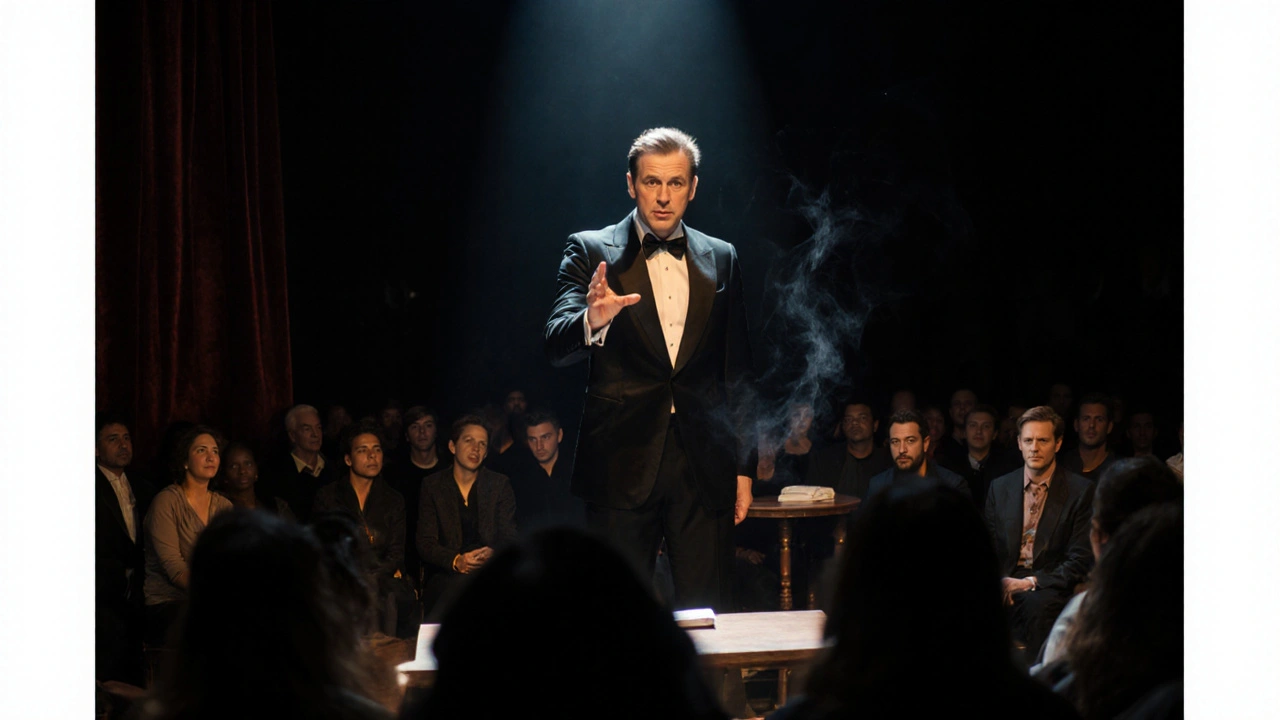How Mentalists Predict the Future (And How You Can See Through It)
Ever watched a mentalist name a hidden word, tell a future event, or read a crowd’s thoughts and thought, "Whoa, they must be psychic!"? The truth is less mystical and more practical. They rely on a toolbox of psychology, suggestion, and a sprinkle of showmanship. Below we unpack the core techniques and give you quick ways to notice them in action.
Cold Reading: The Art of Smart Guesswork
Cold reading starts with broad statements that apply to most people, then narrows down based on reactions. A mentalist might say, "I sense you’ve faced a big decision lately – maybe about work or a relationship." Most folks have recent decisions, so they nod. The performer watches facial cues, body language, and tone to decide which thread to pull next.
Key signs to watch for:
- They pause after a statement, letting you fill the gap with your own details.
- They quickly shift topics if you look uncomfortable.
- They repeat back words you just said, making it feel like mind‑reading.
When you notice these moves, you know the mentalist is steering the conversation, not actually pulling thoughts from thin air.
Psychological Forces and Suggestion
Another staple is the “force.” The performer subtly guides you to pick a specific number, word, or card without you realizing it. For example, they might ask you to think of a number between 1 and 10, then drop hints – “It’s not a high one, maybe something you use daily.” This narrows choices to 3 or 4, increasing the odds of a correct guess.
Watch for patterns like repeated emphasis on certain words, hand gestures that point toward an object, or a slight pause before you speak. These cues act like nudges. In a live show, the mentalist can also use audience placement – sitting you near people who look like they’ll follow the same cue.
To test a force, try deliberately choosing an opposite option. If the mentalist still nails it, they’re probably reading your reaction, not just guessing.
Beyond cold reading and forces, mentalists use misdirection. While you focus on a dramatic gesture, their other hand may be setting up a reveal. Simple everyday tricks, like asking you to write a word on a paper while they glance at it, exploit the same principle.
So, how can you protect yourself from being duped? Keep a mental checklist:
- Notice if the performer uses vague statements that could fit anyone.
- Watch for repeated cues that steer your choices.
- Observe how quickly they react to your body language.
- Ask yourself whether you’re supplying most of the detail.
Most importantly, remember that a mentalist’s goal is entertainment, not real foresight. Their skill lies in reading subtle signals, not in seeing the future.
Next time you sit in a theater or watch a street performer, try applying these pointers. You’ll still be amazed by the show, but you’ll also feel a bit like a detective watching the tricks unfold.

Can Mentalists Predict the Future? Secrets, Science, and Stage Tricks Explained
- by Zephyr Blackwood
- on 28 Sep 2025
Explore how mentalists create the illusion of foreseeing the future using cold reading, hot reading, forcing, and misdirection, plus tips to spot the tricks.
